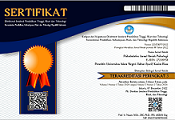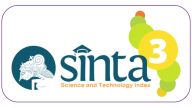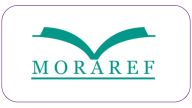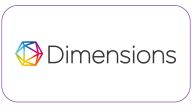Efektivitas Pelatihan Efikasi Diri Akademik Untuk Menurunkan Burnout Akademik Pada Peserta Didik
Abstract
Penelitian ini bertujuan untuk mengetahui efektivitas pelatihan efikasi diri akademik dalam menurunkan burnout akademik pada peserta didik sekolah berasrama. Hipotesis dari penelitian ini adalah pelatihan efikasi diri akademik efektif untuk menurunkan burnout akademik pada peserta didik sekolah berasrama. Peserta didik di boarding school menghadapi beberapa tantangan, seperti jadwal kegiatan asrama dan sekolah yang padat, tuntutan akademik yang tinggi, dan masalah dengan teman sekamar. Faktor-faktor ini membuat peserta didik rentan terhadap burnout akademik. Efikasi diri akademik dapat membantu peserta didik menurunkan burnout akademik, karena mereka yang memiliki efikasi diri akademik tinggi cenderung melihat hambatan sebagai tantangan dan mengembangkan strategi untuk mengatasinya. Peneliti menggunakan peserta didik sekolah berasrama tahun pertama yang memiliki burnout akademik yang tinggi sebagai subjek penelitian. Data dikumpulkan menggunakan skala burnout akademik, tes pengetahuan sebagai pemeriksaan manipulasi, dan modul pelatihan efikasi diri akademik. Penelitian ini menggunakan desain quasi-eksperimentaldengan satu kelompok pretest-posttest. Data dianalisis menggunakan uji Wilcoxon signed rank, dan hasilnya mendukung hipotesis penelitian. Penelitian ini menunjukkan bahwa pelatihan efikasi diri akademik efektif dalam menurunkan burnout akademik.
Keywords
Full Text:
PDFReferences
Amalia, V. R., Zwagery, R. V, & Rusli, R. (2022). Peranan Self Efficacy Terhadap Academic Burnout Pada Peserta Didik Sma Dalam Peralihan Pembelajaran Daring Ke Pembelajaran Luring. Jurnal Education and Development, 10(3), 434–441. https://doi.org/10.37081/ed.v10i3.4112
Arlinkasari, F., & Akmal, S. Z. (2017). Hubungan antara School Engagement, Academic Self-Efficacy dan Academic Burnout pada Mahasiswa. Humanitas (Jurnal Psikologi), 1(2), 81. https://doi.org/10.28932/humanitas.v1i2.418
Atmaja, S. (2019). Sistem Pembelajaran Boarding School Dalam Pengembangan Aspek Kognitif, Psikomotorik, dan Afektif Siswa Man Insan Cendekia Bengkulu Tengah. Jurnal Al-Bahtsu, 4(1), 96–103. http://dx.doi.org/10.29300/btu.v4i1.1992
Awalia, S., Nisa, K., & Hendriani, W. wiwit widya. (2018). Sekolah Menengah Atas Berasrama. Sekolah Menengah Atas Berasrama, 2–5. https://psma.kemdikbud.go.id/index/lib/files/buku/Asrama RPH.pdf
Bandura, A. (1995). Exercise of personal and collective efficacy. In Self- Efficacy in Changing Societies. In Cambridridge University Press.
Bandura, A. (1977). Self-efficacy: toward a unifying theory of behavioral change. Psychological review, 84(2), 191. https://doi/10.1037/0033-295X.84.2.191
Bandura, A. (1997). Self-Efficacy: The exercise of control. New York, NY: W. H. Freeman and Company.
Bandura, A. (1989). Social cognitive theory, in Vasta, R. (Ed.), Annals of Child Development, Vol. 6, JAI Press, Greenwich, CT, pp. 1-60.
Bandura, A. (1986). Social Foundations of Thought and Action: A Social Cognitive Theory. Prentice Hall, Englewood Cliffs, NJ.
Barrios, A. A. (1997). The Magic of the Mind (MOM) program for decreasing school dropout (405436): U.S. Department of Education: Educational Resources Information Center.
Charkhabi, M., Abarghuei, M. A., & Hayati, D. (2013). The association of academic burnout with self-efficacy and quality of learning experience among Iranian students. SpringerPlus, 2(1), 1–5. https://doi.org/10.1186/2193-1801-2-677
Chemers, M. M., Hu, L. T., & Garcia, B. F. (2001). Academic self-efficacy and first-year college student performance and adjustment. Journal of Educational Psychology, 93(1), 55–64. https://doi.org/10.1037/0022-0663.93.1.55
Cohen, L., Manion, L., & Morrison, K. 2007. Research Methods in Education (6th ed.). London, New York: Routllege Falmer.
Fritz, C. O., & Morris, P. E. (2012). Effect Size Estimates: Current Use, Calculations, and Interpretation. Journal of Experimental Psychology, 14(1), 2-18. doi:10.1037/a0024338
Honicke, T., & Broadbent, J. (2016). The influence of academic self-efficacy on academic performance: A systematic review. Educational Research Review, 17(January), 63–84. https://doi.org/10.1016/j.edurev.2015.11.002
Husain, U. K. (2014). Relationship between Self-Efficacy and Academic Motivation. 18–22. https://doi.org/10.15242/icehm.ed1214132
Jenaabadi, H., Nastiezaie, N., & Safarzaie, H. (2017). The relationship of academic burnout and academic stress with academic self-efficacy among graduate students. New Educational Review, 49(3), 65–76. https://doi.org/10.15804/tner.2017.49.3.05
Leiter, M. P. (1992). Burn-out as a crisis in self-efficacy: Conceptual and practical implications. Work and Stress, 6(2), 107–113. https://doi.org/10.1080/02678379208260345
Lockwood, P., & Kunda, Z. (1997). Superstars and me: Predicting the impact of role models on the self. Journal of personality and social psychology, 73(1), 91. https://doi/10.1037/0022-3514.73.1.91
LTMPT. (2022). Top 1000 Sekolah Tahun 2022 Berdasarkan Nilai UTBK. https://top-1000-sekolah.ltmpt.ac.id/
Maksudin, M. (2012). Sistem Boarding School SMP Islam Terpadu Abu Bakar Yogyakarta (Transformasi dan Humanisme Religius). Cakrawala Pendidikan, (1), 84448. https://dx.doi.org/10.21831/cp.v0i1.1465
Maslach, C., & Leiter, M. P. (2008). Early Predictors of Job Burnout and Engagement. Journal of Applied Psychology, 93(3), 498–512. https://doi.org/10.1037/0021-9010.93.3.498
Maslach, C., & Leiter, M. P. (2016). Burnout. Stress: Concepts, Cognition, Emotion, and Behavior: Handbook of Stress, 351–357. https://doi.org/10.1016/B978-0-12-800951-2.00044-3
Meltzer, D. E. (2002). The relationship between mathematics preparation and conceptual learning gains in physics: A possible “hidden variable” in diagnostic pretest scores. American journal of physics, 70(12), 1259-1268. https://doi.org/10.1119/1.1514215
Mostafavian, Z., Farajpour, A., Ashkezari, S. N., & Shaye, Z. A. (2018). Academic Burnout and Some Related Factors in Medical Students. Journal of Ecophysiology and Occupational Health, 18(1&2), 1–5. https://doi.org/10.18311/jeoh/2018/20928
Naderi, Z., Bakhtiari, S., Momennasab, M., Abootalebi, M., & Mirzaei, T. (2018). Prediction of academic burnout and academic performance based on the need for cognition and general self-efficacy: A cross-sectional analytical study. Revista Latinoamericana de Hipertension, 13(6), 584–591. https://www.redalyc.org/journal/1702/170263777015/html/
Nena Meo, M. L., Ayu Pramitharesthi, I. G., & M, A. N. (2021). The Effect of Academic SelfEfficacy Training Toward The Nursing Students’ Academic Burnout Participating In BlockSystem Learning. Indonesian Nursing Journal of Education & Clinic (INJEC), 6(2), 113–119. https://doi.org/10.24990/injecv6i2.363
Orpina, S., & Prahara, S. A. (2019). Self-Efficacy dan Burnout Akademik pada Mahasiswa yang Bekerja. Indonesian Journal of Educational Counseling, 3(2), 119–130. https://doi.org/10.30653/001.201932.93
Purwati & Mahfud, Y. (2019). Pengaruh Dukungan Sosial, Kepribadian Hardiness, Dan Efikasi Diri Terhadap Burnout (Studi Pada Guru SMP Negeri 1 Sigaluh Banjarnegara). Journal of Economic, Business and Engineering, 1(1), 70–77. https://doi.org/10.32500/jebe.v1i1.877
Rahmati, Z. (2015). The Study of Academic Burnout in Students with High and Low Level of Self-efficacy. Procedia - Social and Behavioral Sciences, 171(1996), 49–55. https://doi.org/10.1016/j.sbspro.2015.01.087
Rahmatpour, P., Chehrzad, M., Ghanbari, A., & Sadat-Ebrahimi, S. R. (2019). Social Support and Self Care Behavior Study. January, 1–6. https://doi.org/10.4103/jehp.jehp
Ramadhan, M. R., Padang, U. N., & Barat, S. (2022). Hubungan antara dukungan teman sebaya dengan burnout akademik pada siswa Madrasah Aliyah Islamic Boarding School. Ar-risalah. 5(3), 87–98. http://dx.doi.org/10.24036/jrp.v5i3.13738
Rohmani, N., & Andriani, R. (2021). Correlation between academic self-efficacy and burnout originating from distance learning among nursing students in Indonesia during the COVID-19 pandemic. Journal of Educational Evaluation for Health Professions, 18, 1–6. https://doi.org/10.3352/JEEHP.2021.18.9
Salmela-Aro, K., Kiuru, N., Leskinen, E., & Nurmi, J. E. (2009). School burnout inventory (SBI) reliability and validity. European Journal of Psychological Assessment, 25(1), 48– 57. https://doi.org/10.1027/1015-5759.25.1.48
Schaufeli, W. B. (2003). Past performance and future perspectives of burnout research. SA Journal of Industrial Psychology, 29(4), 1-15. https://hdl.handle.net/10520/EJC88982
Sugiyanti, D. A., Suhariyanti, E., Priyanto, S., Ilmu, F., Universitas, K., Magelang, M., Ilmu, F., Universitas, K., Magelang, M., Ilmu, F., Universitas, K., & Magelang, M. (2017). Pengaruh Guided Imagery Dalam Menurunkan Stress Siswa Menghadapi Proses Boarding Scholl Di SMK Kesdam IV Kota Magelang. Journal of Holistic Nursing, 4(2), 50–58. https://journal.unimma.ac.id/index.php/nursing/article/view/1749
Ugwu, F. O., Onyishi, I. E., & Tyoyima, W. A. (2013). Exploring the Relationships Between Academic Burnout, Self- Efficacy and Academic Engagement Among Nigerian College Students. The African Symposium : An Online Journal of the African Educational Research Network, 13(2), 37–45. https://www.researchgate.net/profile/Fabian-Ugwu-2/publication/319321495
Ventura, M., Salanova, M., & Llorens, S. (2015). Professional self-efficacy as a predictor of burnout and engagement: The role of challenge and hindrance demands. Journal of Psychology: Interdisciplinary and Applied, 149(3), 277–302. https://doi.org/10.1080/00223980.2013.876380
Wahab, S., Rahman, F. N. A., Wan Hasan, W. M. H., Zamani, I. Z., Arbaiei, N. C., Khor, S. L., & Nawi, A. M. (2013). Stressors in secondary boarding school students: Association with stress, anxiety and depressive symptoms. Asia-Pacific Psychiatry, 5(SUPPL. 1), 82– 89. https://doi.org/10.1111/appy.12067
Zajacova, A., Lynch, S. M., & Espenshade, T. J. (2005). Self-efficacy, stress, and academic success in college. Research in Higher Education, 46(6), 677–706. https://doi.org/10.1007/s11162-004-4139-z
Zhang, Y., Gan, Y., & Cham, H. (2007). Perfectionism, academic burnout and engagement among Chinese college students: A structural equation modeling analysis. Personality and Individual Differences, 43(6), 1529–1540. https://doi.org/10.1016/j.paid.2007.04.01
Zysberg, L., & Schwabsky, N. (2021). School climate, academic self-efficacy and student achievement. Educational Psychology, 41(4), 467–482. https://doi.org/10.1080/01443410.2020.1813690
DOI: http://dx.doi.org/10.24014/pib.v6i1.27287
Refbacks
- There are currently no refbacks.
Redaksi Psikobuletin: Buletin Ilmiah Psikologi
Publisher: Universitas Islam Negeri Sultan Syarif Kasim Riau
Jl. H.R. Soebrantas Km. 15.5 No. 155 Gedung Fakultas Psikologi UIN Sultan Syarif Kasim Riau Kel. Tuahmadani Kec. Tampan Pekanbaru - Riau 28293.
E-mail : psikobuletin@uin-suska.ac.id / Website :http://ejournal.uin-suska.ac.id/index.php/Psikobuletin
Psikobuletin : Buletin Ilmiah Psikologi by Fakultas Psikologi is licensed under a Creative Commons Attribution 4.0 International License.



31.png)





